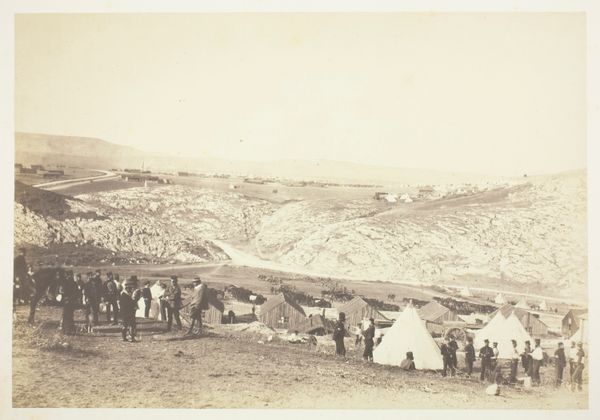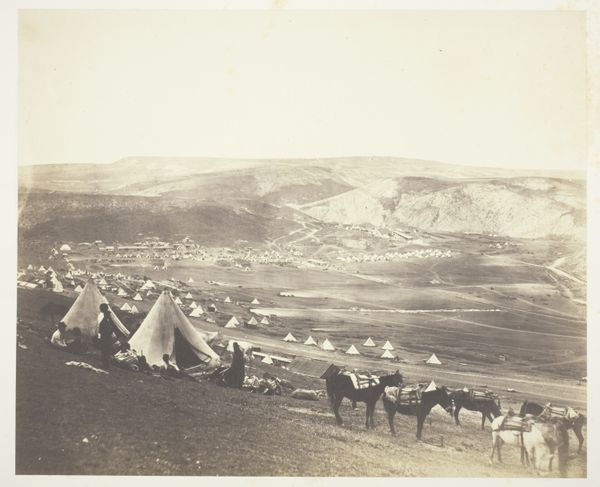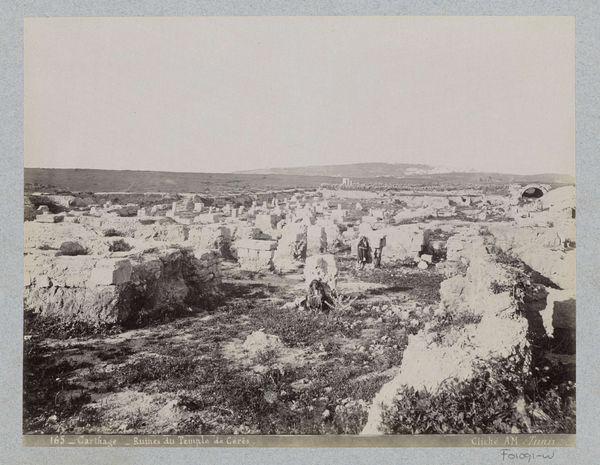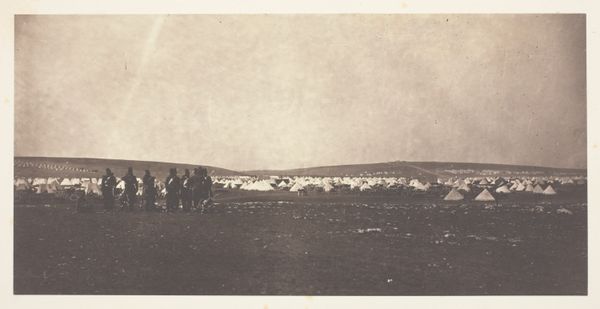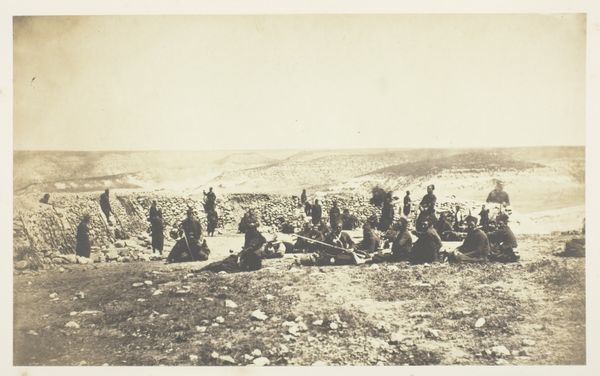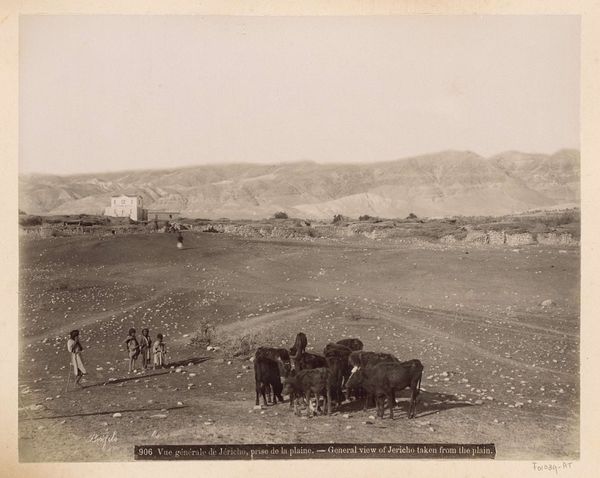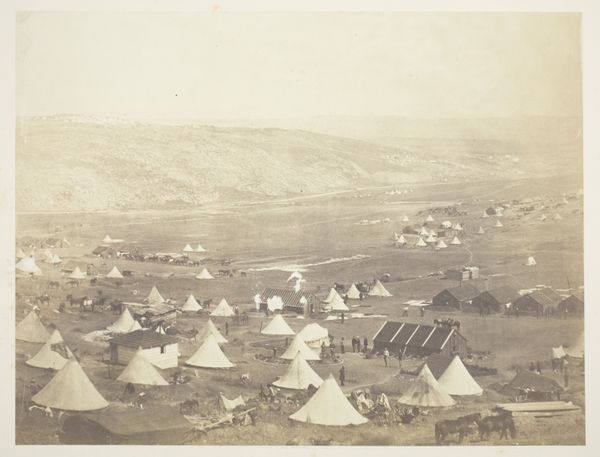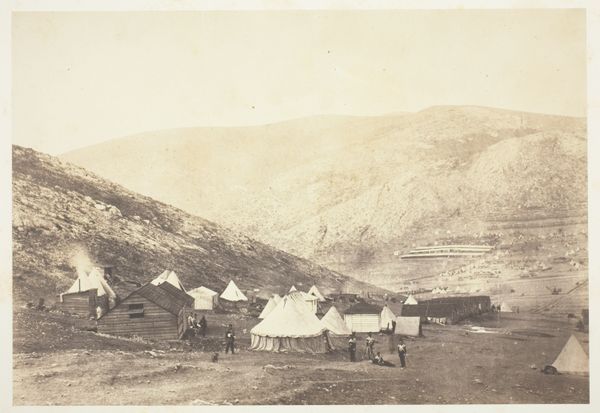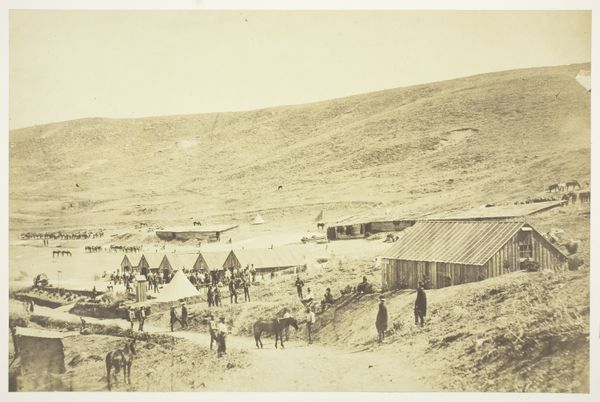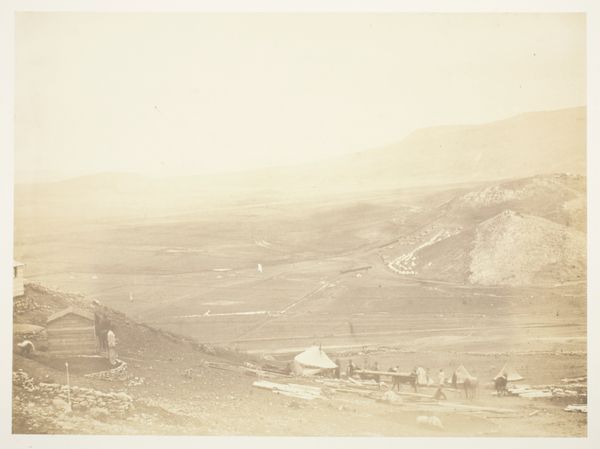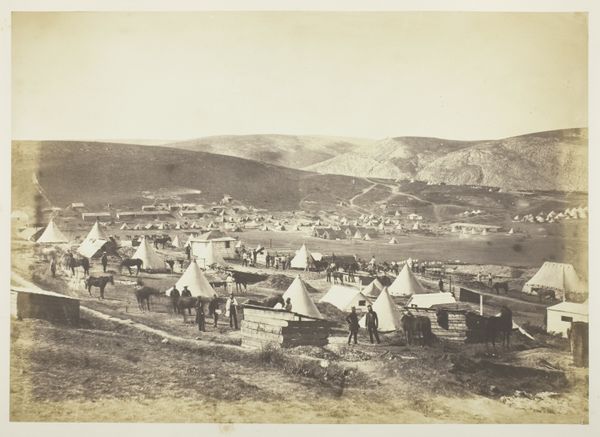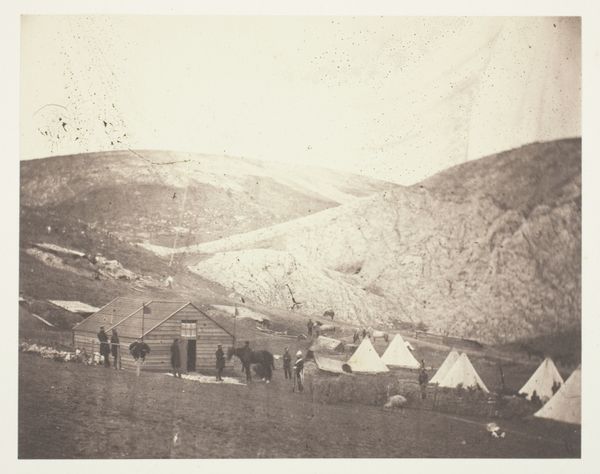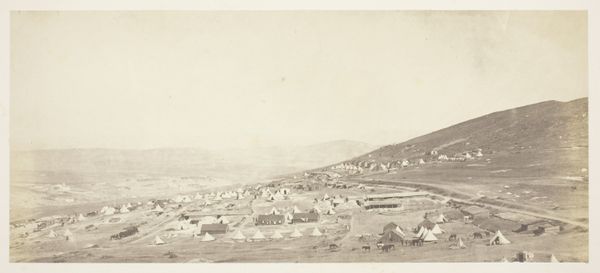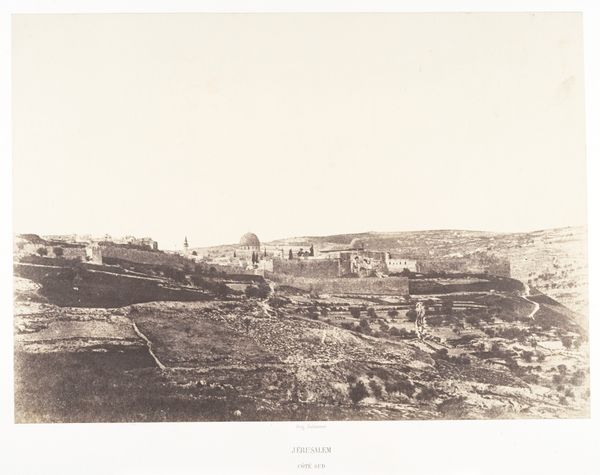
print, paper, photography, albumen-print
#
16_19th-century
# print
#
war
#
landscape
#
paper
#
photography
#
england
#
albumen-print
Dimensions: 23.9 × 33.8 cm (image/paper); 40.4 × 53.3 cm (mount)
Copyright: Public Domain
Editor: This is Roger Fenton's "Encampment of Horse Artillery," taken in 1855. It’s an albumen print on paper. Looking at it, I’m struck by the contrast between the seeming stillness of the landscape and the implied activity of the war camp. What do you see in this piece that maybe I'm missing? Curator: What strikes me is Fenton's engagement with the emerging public consciousness around war, particularly through photography. The Crimean War was one of the first to be widely documented and disseminated to the public via photographs. How do you think this photograph contributes to that visual record, and what kind of narrative is it constructing, if any? Editor: That’s a great point about it being a public-facing image. It doesn’t seem overtly propagandistic. The scene appears almost mundane, more about daily life than glorious battle. It seems like there are a lot of people just standing around? Curator: Precisely. This “mundanity,” as you put it, is carefully constructed. The British government commissioned Fenton, and his access was highly controlled. He couldn’t, or wouldn't, depict the gruesome realities of war—the wounded, the dead. Consider the title itself: "Encampment of Horse Artillery." It's descriptive, seemingly neutral, but also implicitly avoids any explicit depiction of violence. Where do you think Fenton's photograph sits within a broader visual and political landscape? Does it support the war effort, or subtly critique it, or neither? Editor: It feels complicated. On one hand, it sanitizes war, making it look…organized. On the other, maybe showing the boredom and waiting humanizes the soldiers, which could generate sympathy? I hadn't considered the politics behind the image itself before. Curator: Exactly! This photograph provides valuable insight into how early war photography functioned as a medium shaping public perception during the Crimean War. Thank you for letting me discuss this important work. Editor: And thank you for the context, it's definitely changed my perception of this image!
Comments
No comments
Be the first to comment and join the conversation on the ultimate creative platform.
